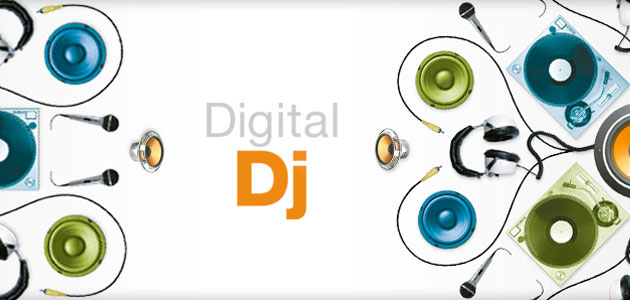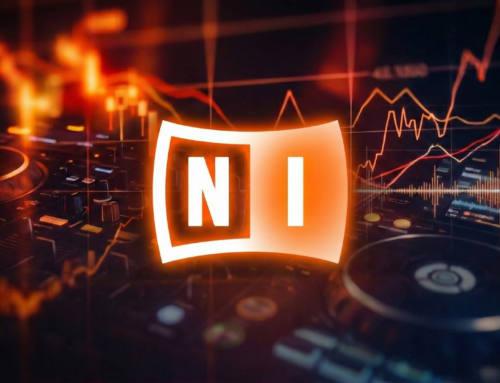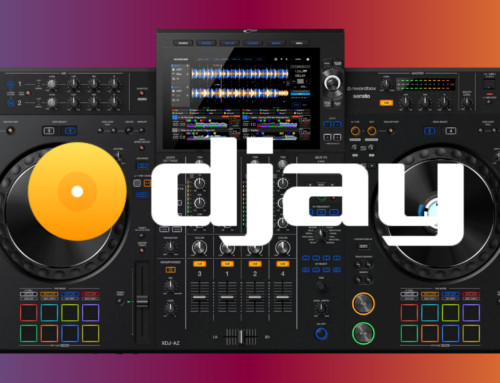
Magix made their name with Samplitude in Germany in the 90s, and they’re also behind undervalued PC DAW Sequoia – so they have some credibility. In fifteen years they’ve gone from a team of five with one product to a global company with 300 staff and a portfolio that includes software for backing up data, building websites and converting VHS to DVD. They’ve diversified as they’ve grown, and today the Magix website gives little hint of the musical roots to which it owes its existence: video tools are clearly Magix’s main focus these days.
So how does a company with this unusual back-story fare when it releases a modern digital DJ solution?
Digital DJ is “powered by Deckadance,” which seems to mean that the timing engine is licensed. Digital DJ can be upgraded to Deckadance and so can actually be thought of as like a Deckadance Lite. Indeed, a number of features are just greyed out and are only there to tempt you to upgrade: you can’t modify the patterns in the awesome Relooper, for example, and you can’t load your own samples into any of the eight sample slots, and you can’t record your mix to disc, even though the button is right there.
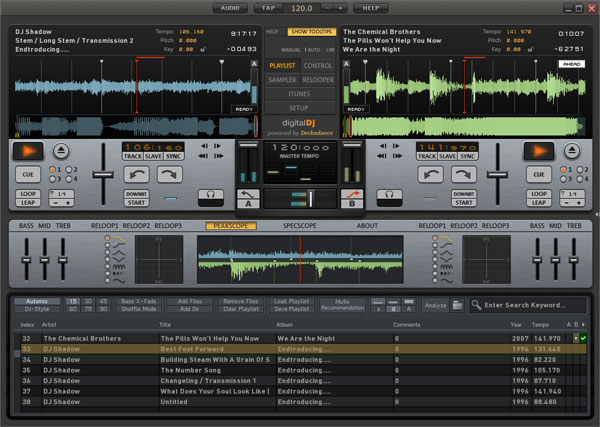
Magix Digital DJ
The features that do work are fine, of course. The timing engine is good and I love Relooper. The layout is straightforward and unproblematic and your hotcues and loops do what they’re supposed to. In fact, everything about this package is just fine, really – it’s vanilla, derivative even, but as a DJ interface it does the job.
The question of what its job really is, though, is another matter. Magix have spotted a market old enough that the fundamentals are already established, but young enough that price point competition is still highly volatile.
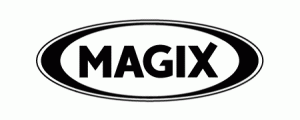 Make no mistake, though – Digital DJ exists to sell you Deckadance. I quite like Deckadance, but there’s something underhanded about all this that leaves me feeling a little bit dirty. The $49.99 USD asking price no longer looks like a bargain basement price for what’s really a pretty good piece of software, it starts to seem like a lot of money to pay to be constantly reminded to fork out for the full version. And given that Virtual DJ and Serato both have “proper” free editions available, I can’t help but think that the people who buy this are going to be well-meaning mums who like that the website doesn’t feel threatening, and maybe some mobile DJs.
Make no mistake, though – Digital DJ exists to sell you Deckadance. I quite like Deckadance, but there’s something underhanded about all this that leaves me feeling a little bit dirty. The $49.99 USD asking price no longer looks like a bargain basement price for what’s really a pretty good piece of software, it starts to seem like a lot of money to pay to be constantly reminded to fork out for the full version. And given that Virtual DJ and Serato both have “proper” free editions available, I can’t help but think that the people who buy this are going to be well-meaning mums who like that the website doesn’t feel threatening, and maybe some mobile DJs.
Because it does what it needs to. I need to stress this point: seen objectively and alone, the software is fine; a good-enough entry-level DJ package with the important bases covered and no major complaints. That its only genuine claim to originality is a dubious marketing campaign, which has no bearing on the quality of the software at all.
The question is – is that kind of distinction a reasonable way to determine the value of something?
